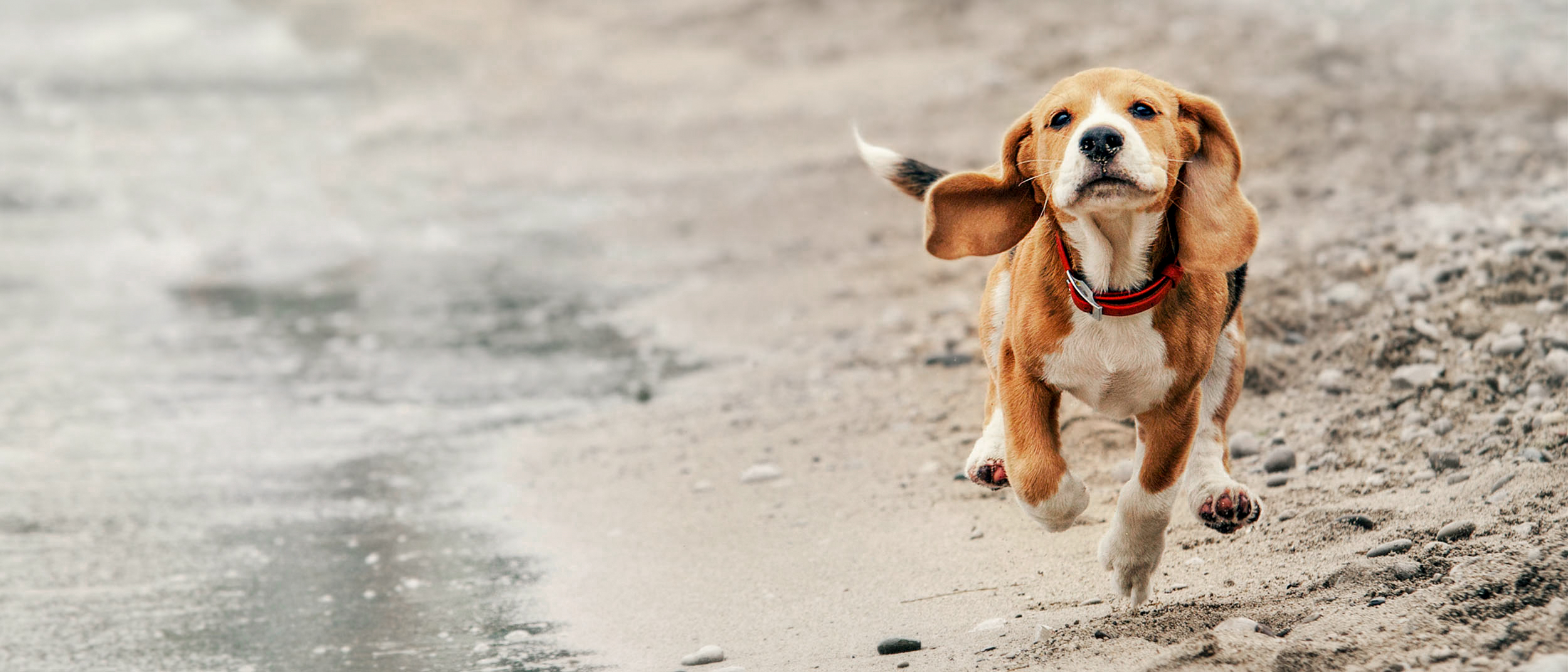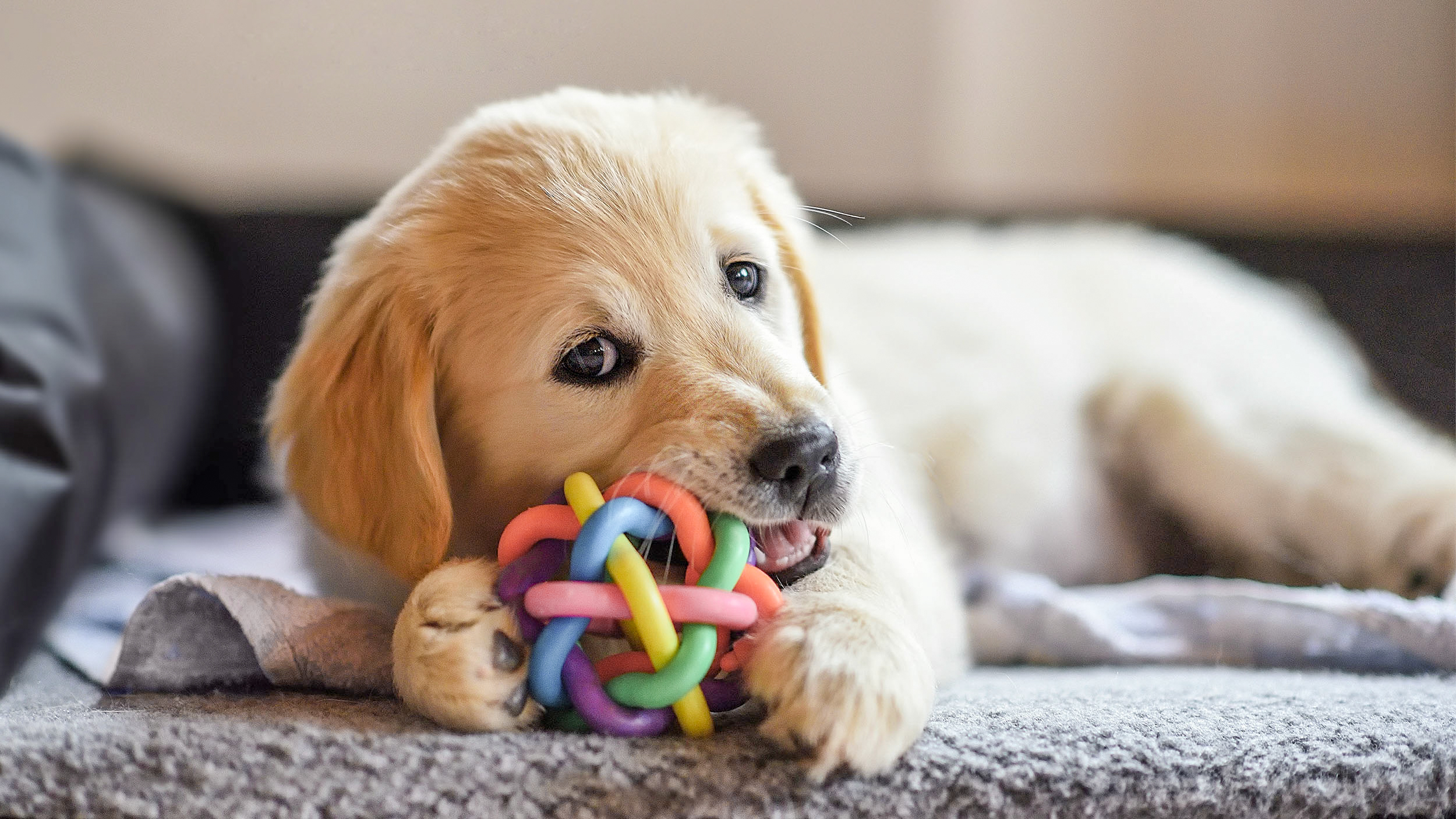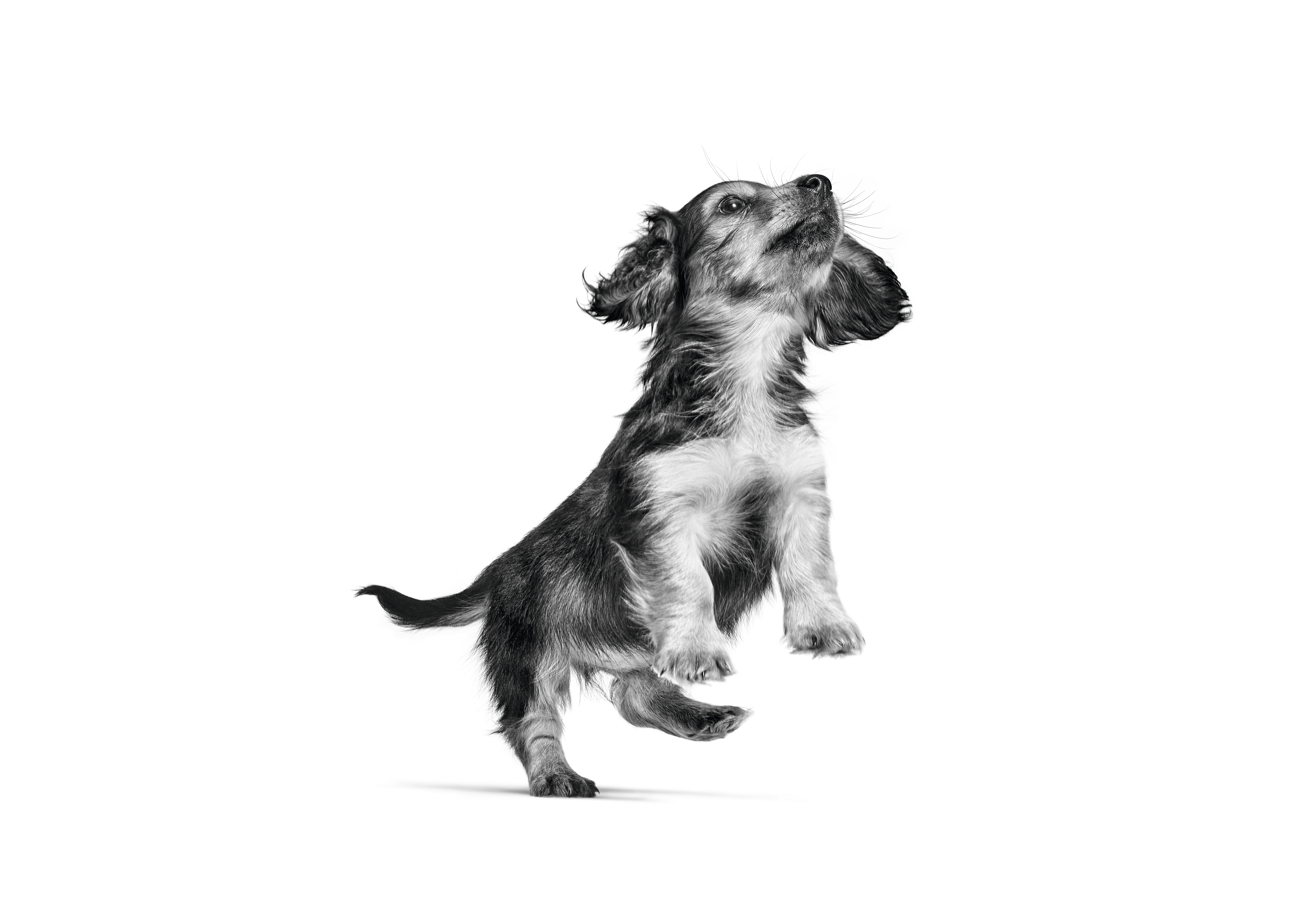How to care for a dog

There are a number of factors that will influence your dog’s health and wellbeing needs, especially their breed and age. It is therefore important that everything from their nutritional requirements to exercise and grooming, are considered with their particular characteristics in mind. However, there are a number of things that all dogs need to ensure they are healthy and well adjusted members of the family.
Exercise
All dogs require exercise, but the amount and type varies with their age, size and breed.
- Make sure there is space to exercise: A dog's walks must not just be considered as time for a quick wee.
- Little and often: Remember, medium to giant dogs have longer growth periods during which their bones and joints develop, therefore they should not walk long distances or engage in certain sports until they are more grown up, instead opting for little and often.
- Make time to play: Playing is a natural part of a dog’s exercise and helps in their psychological development. It is good for your dog in several different ways: for you to spend time with them, to reinforce bonding, to control their weight, to maintain their vitality and to reinforce their cardiovascular and immune systems.
Environment
Puppies are very receptive to their environment, and negative experiences will have a lasting effect. The behavioural development of a puppy has several phases including the socialisation period, which starts from four weeks and goes up to 14 weeks.
The fear period lies within this socialisation period, so any trauma occurring during this time may have lasting, negative consequences. Therefore, it is important to pay careful attention to a puppy’s environmental experiences from day one.
- Give them their own bed: Make sure they have a bed of their own which they can retreat to and feel safe in.
- Provide stimulating surroundings: For example, a large cardboard box to hide in and rubber toys to chew are favourites. It's important to make sure all play sessions are supervised.
- Familiarise them with new surroundings gradually: If you live in a city you should gradually familiarise them with things they will have to face such as cars, escalators, elevators, trains, trams or buses.
- Train it to be alone: The puppy must also learn to stay alone sometimes.
- Introduce them to other dogs: To help with socialisation, puppies need to meet other dogs, other animals and be included as much as possible in family outings.
- Take them out: Don’t wait to take your puppy out. It must start exploring its surroundings as from the age of two months.

Feeding
As with exercise, nutritional needs change as your puppy grows. At the outset, puppies will require several small meals a day, gradually reducing to one or two. Equally, the size and breed of your dog will influence its nutritional requirements as some dogs have different digestive tolerances to others. Dogs should always have access to water, and it’s important not to overfeed them.
If you're unsure about how much they should be fed, or how their growth stages will impact this, ask your vet for advice. They will be able to provide guidance for optimal growth and help to avoid obesity and strain on developing joints.
Ultimately, food has to supply energy, but it also has to build and maintain the body’s cells, helping to prevent digestive, skin, dental, joint and age-related problems. A nutritious food, meeting the demands of health nutrition, will combine just the right amounts of nutrients.
- Don't change foods suddenly: To avoid disturbing a puppy’s digestive system when it first comes home, give it the same food as it ate before coming to you. If you wish to change, do so gently over a one-week transition period by mixing the old and new foods in varying ratios.
- Get the right food for its age: There is special formula for puppies according to age, which is perfectly suited to their growth needs. For optimal growth, follow your vet's recommendations.
- Establish a routine: Dogs are pack animals and need precise hierarchical markers. Feed your puppy every day in the same place, at the same time, and after you and your family have eaten so that it understands that you have the dominant position in the household. After eating, if possible avoid your puppy jumping about for one or two hours.
- Make treats the exception, not the rule: Treats should be an exception to help keep your dog at its ideal weight. Sugar and chocolate are forbidden as chocolate can be poisonous for dogs. Low calorie kibbles can be used as a training aid.
Grooming and health
Regular grooming is a good habit to get into. It will help support the health of your puppy’s skin and coat, as well as improving the bond between you. It will also ensure that you are more likely to detect any abnormalities such as external parasites, skin disorders or areas of discomfort at an early stage. Most dogs are happy to be groomed if they become used to it at an early age, but it is never too late to start!
- Start dental care young: This way your puppy gets used to having its teeth brushed using a toothbrush and toothpaste specially designed for dogs. Try to brush your puppy’s teeth several times a week.
- Book in vaccinations: Vaccinations help prevent contagious and sometimes fatal diseases. Some are mandatory, while others are recommended. Puppies usually begin a vaccination programme at the age of six to eight weeks.
- Ask your vet about worming: Puppies often have worms, and worming should be carried out every month up until the age of six months, then every six months. Your vet will be able to recommend the best schedule for your puppy, so it's important to follow their direction.
- Ask your vet about protection against fleas: Remember to protect your puppy from fleas and ticks. To work properly, you have to treat the dog and the environment too. Ask your veterinarian for advice.
- Consider spaying or neutering your pet: Deciding whether to spay or neuter is an important choice which must be considered carefully. It is important to weigh any potential benefits of spaying or neutering against the possibility of being able to breed from your dog in the future.
Training
Good behaviour and obedience need to start early. Your training programme must start as early as possible, at an age when your puppy naturally has an excellent capacity for learning.
For your comfort, and other people’s, your dog must understand some basic rules of life. Don’t hesitate to call in professional help with your dog training. There are many dog clubs or puppy schools which can help you with your mission.
- House training: When it arrives at your house, your puppy will most likely not be house-trained. Training takes time and patience but never punish or reprimand a puppy who has had an accident. Instead, find ways to prevent your puppy from ever having the need to eliminate indoors.
- Start recall early: Right from the start, pronounce its name slowly and clearly to attract its attention and associate its name to each command. Choose the moments when it is alert to help it get to know you, and invite it to come towards you to teach it to obey.
- Gradually get them used to the car: Get your puppy used to going in the car from an early age, so that it doesn’t worry it. Take a few short rides before any long trips.
There can be a lot of information to take on board when you first get a puppy, including all of the initial things it needs to ensure its physical and emotional health, but starting in the right way will make everything easier for you and your dog moving forward, and if you are ever in doubt your vet should be able to offer advice and support.
Learn more about dog breeds

Like & share this page